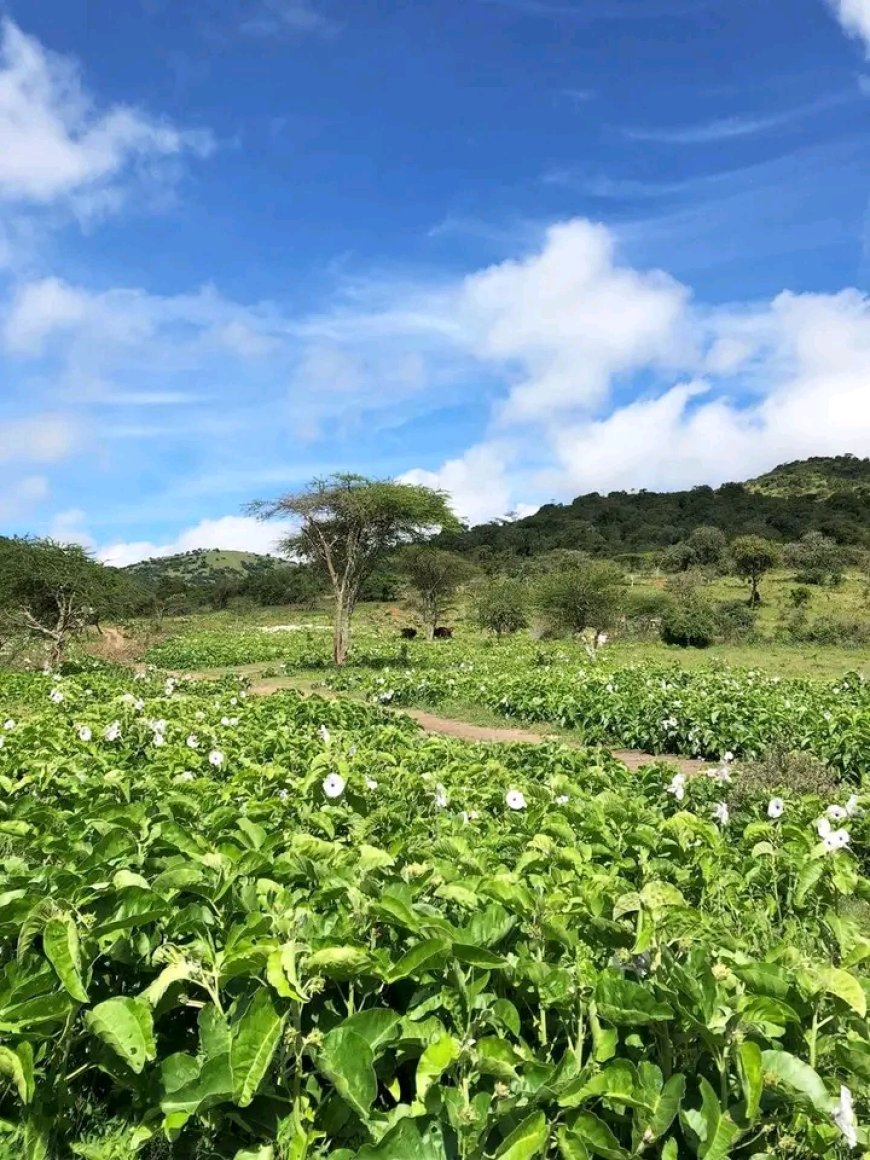Invasive weed proves a menace to Kajiado livestock farmers

Kajiado,
Tuesday, January 23, 2024
KNA by Diana Meneto
Even as the rains continue to pound several parts of the country providing the much-needed relief for livestock farmers who suffered a lot from the recent drought, livestock farmers in Kajiado are not a happy lot due to an invasive weed, Ipomoea carnea, which has invaded their grazing lands.
According to the residents, the invasive weed also known as Bush Morning Glory spreads fast and has greatly affected the growth of pasture for their livestock.
The evergreen choke weed has mushroomed due to the rains which the livestock farmers had believed would be a blessing after the ravaging drought which diminished their livestock herd.
According to Mary Timayio, a livestock farmer in Meto, Kajiado Central constituency, several acres of the land in the area have been invaded by the weed which cannot be consumed by livestock neither can pasture grass grow under it or its surroundings.
“After the ravaging drought, I was left with a few cows which survived. We prayed for rain but, unfortunately, the ipomoea weed has invaded our lands instead of the pasture that we desperately need for our livestock,” said Timayio.
The weed which is spread by stem fragments and seeds, which may be easily carried by flood water to new areas as well as moving livestock has invaded Kumpa, Meto, Maili Tisa in Kajiado Central and some areas in Kajiado West constituency.
“Even with intense rains, the weed keeps on growing, inhibiting the growth of grass. Our efforts to eradicate it with different herbicides have proved futile,” laments Jeniffer Tarayia, a livestock farmer in Kumpa.
Having no other alternative, the residents have come together in groups to uproot the hazardous flowery weed in a bid to reclaim their grazing lands.
“We come together as a group of up to 100 people and we uproot the weed from a particular farm then move to the rest in a bid to eliminate the weed which has become a thorn in the flesh every time it rains,” said Tarayia.
They have noted that once the weed matures, its hairy seeds are easily carried by water and air and they regrow once it rains, but once uprooted before maturity it doesn't regenerate.
“The uprooting method is not only labor intensive but it limits us from undertaking other day-to-day activities like bead making,” added Tarayia.
The residents of Meto, Kumpa, Maili Tisa and other areas of Kajiado West have embraced the group uprooting method as similar efforts in the Esilalei area bore fruit.
Esilalei chief, Gideon Kasaine affirms that the uprooting method though labor intensive indeed works as his area residents came together in groups to uproot the weed and it worked for them after several attempts.
The frustrated residents are now appealing to both the county and national governments to help them eradicate the weed which has been a perennial challenge once it rains.
“Livestock are our only source of livelihood. At least a few survived the drought but the invasive weed is threatening their survival once more. We are appealing to the government to research on how it can be eliminated once and for all,” said Benson Kipamet, a Meto resident.
He added that leopards, hyenas and snakes easily find hideouts in the invasive weed which is a safety hazard for them and their children.
Though the weed locally known as ’olbeneyioi’ mainly affects cattle if they consume it in large quantities, it is also poisonous to goats as it affects their central nervous systems.
Affected goats will present symptoms such as lack of coordination in muscular movements, difficulty to stand up, intense tremors, and loss of equilibrium.
Courtesy; KNA
What's Your Reaction?
































































































































































































































































































